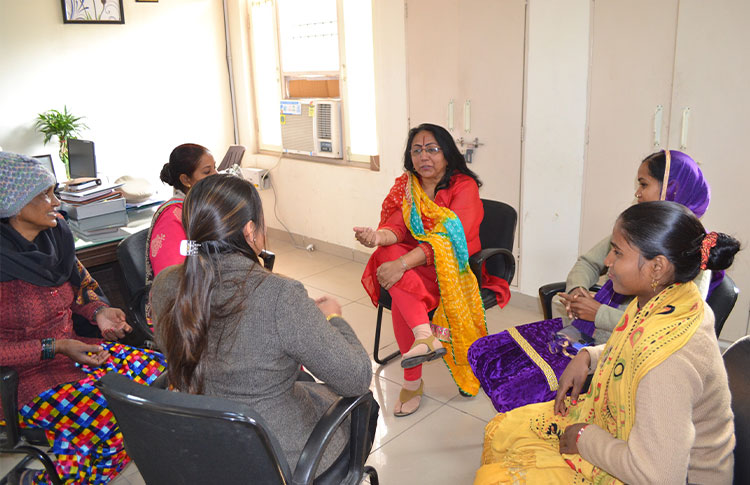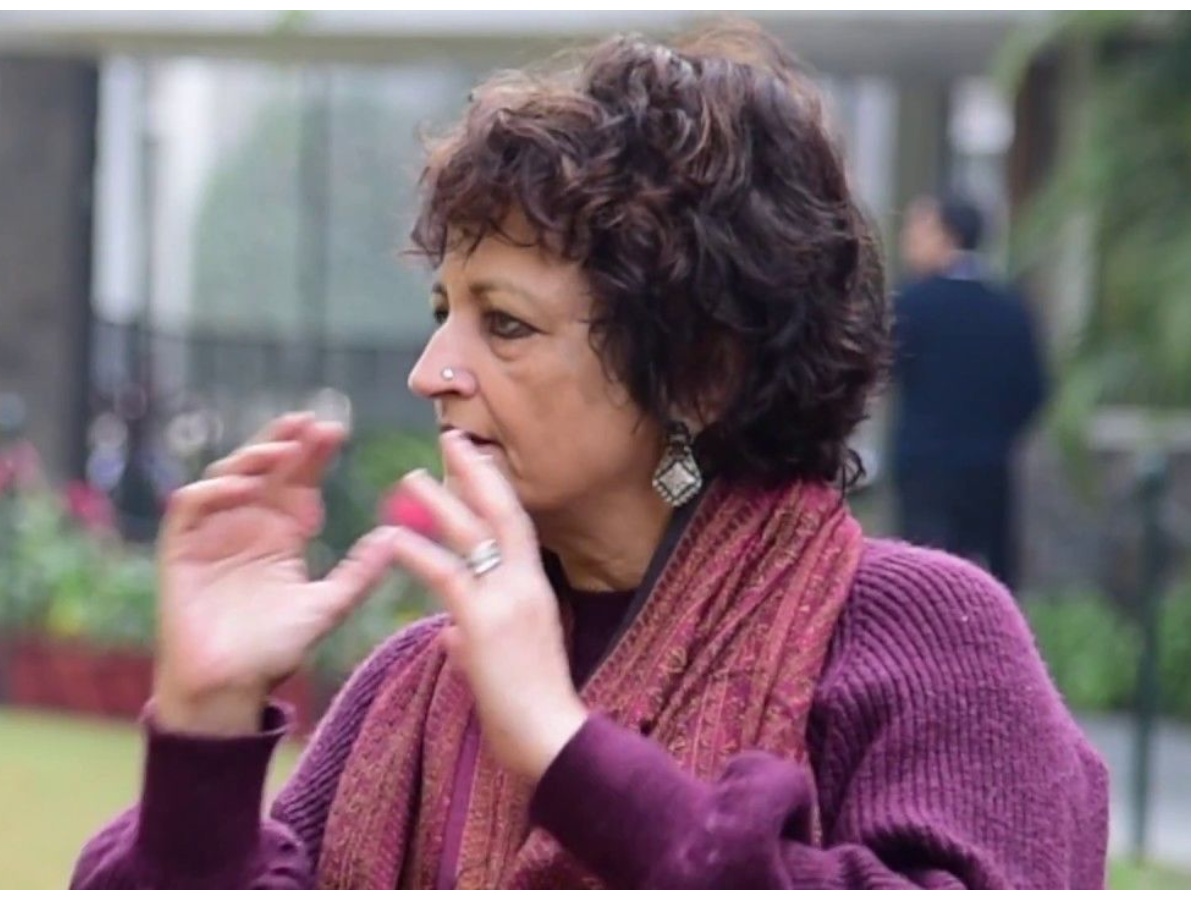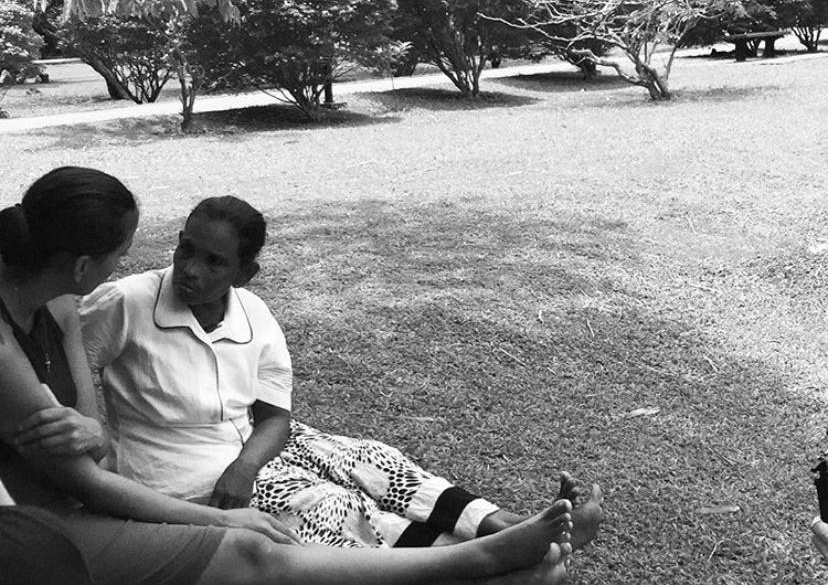Counselor Renu Mathur Helps Sexual Assault Survivors Cope With Grieving
- IWB Post
- February 6, 2020

Traditionally, the act of grieving is associated with the loss of a loved one. As a society, we tend to link grief solely with death. Our understanding of the subject depends on Dr. Kubler-Ross’s proposed model called the five stages of grief. She later refined her initial model to accommodate two more components, making it ‘seven stages of grief’, which is now used worldwide by experts for an in-depth analysis of grief in a person.
However, based on our experiences in our day-to-day life, we have begun to understand and acknowledge losses that are not death related. So, what does grief in victims of sexual assault and domestic abuse look like? Do they go through the same seven stages as a regular person or is their process more painful and complicated? A study suggested that the victims of sexual assault and domestic abuse grieve for multiple losses, many of which still go unrecognized and unacknowledged. In a country, where the word ‘psychiatrist’ is considered taboo in most households, where do we seek answers to understand the plight of the survivors?
In this exclusive interview with the grief counselor and social activist Renu Mathur, we aim to present fresh insights on the sensitive issue of grief in survivors. “Not all victims have the social luxury of getting a divorce or leaving their house. They need to know how to become strong and deal with the situation. Unfortunately, in our society, people have no clue about the existence of grief counseling for survivors,” says Renu Mathur in this interview with IWB.
Renu Mathur has been working as a grief counselor for emotional stress and trauma for more than twenty years. She is currently offering her professional services to the Panchkula Police in a first of its kind grief counseling initiative for survivors and police in the country. “Even policemen have ups and downs in their lives. They too undergo emotional stress while handling critical cases of domestic abuse and sexual violence. My endeavour as a counselor is to provide them with any kind of emotional support that they may need,” she says.
Excerpts,
You work as a grief counselor with the Panchkula Police, could you tell us how the presence of a counselor at the police station can help in the police work? How important is gender sensitization during counseling?
Renu: There are two aspects to my work with the police. One is that I work with victims of rape and domestic abuse and counsel them along with their family – helping them reconnect with life beyond the stigma. Secondly, I also counsel the police officials involved in the investigation of such sensitive cases. Talking about gender sensitization, usually, the officials develop emotional immunity over a period of time. So, we try to deal with each individual as a person so that the survivor/complainant gets connected. The main objective is to ensure that the person feels that they are talking to a human being and not just a police officer. People have a negative reaction when they enter a police station and we are trying to ensure that they (victim or accused) should feel safe when they walk in. Nobody should feel scared. Even police officials face a lot of emotional stress. Through my work, I am trying to provide support to whoever needs it.
Let’s talk about PTSD in sexual assault cases. Could you tell us about the common symptoms in such cases? How can the people around them be sensitized about their situation and help them in the healing process?
Renu: In order to learn about PTSD in survivors, one needs to observe their body language, their choice of words, etc. There are extreme cases; either the person will go into a shell, or stop expressing their emotions and sharing issues. Everything becomes superficial with such victims and they pretend to be fine. One needs to observe the signs – the way they withdraw themselves from social life, the way they are scared of relationships, etc. A victim of sexual assault always shows some signs of fear and we need to look out for those signs. As a survivor all I need is support – somebody to listen to me, to wipe my tears and put a hand on my shoulders. The first line of support is the family. I suggest that the family take counseling sessions along with the survivors and go through the whole process with them. Not only will this help the survivor but also make the family better understand what the victim is going through.
Since the survivors go through a traumatic experience, could you highlight the ways it affects their relationship with a) themselves b) the society?
Renu: When a person goes through an experience of sexual assault, esp. at the hands of a family member or a close relative, it becomes very difficult for the victim to continue to lead a normal life. The families are clueless and do not know how to deal with the survivors. Often, the family and the relatives blame the victim for their ordeal. Through counseling, I try to help the survivors come to terms with what happened and teach them that it was not their fault. There is a lot of guilt experienced by the survivors and it takes a great deal of effort to bring the person out of it. They stop trusting anyone around them, including their family, and usually withdraw from any kind of social life. As far as society is concerned, we cannot educate everyone. In most cases, the neighbours tend to make fun of the victim. We need to ensure that the survivors become strong enough to look people in the eye and tell them that what happened wasn’t their fault and whether you choose to accept this fact or not is up to you. Thankfully, things are changing and people are realizing things but we have a long road ahead. The main problem in our society is the mindset. The process of changing that mindset is gradual and may take another fifty years or so.
You mentioned about using support groups to address cases of trauma in the survivors. Outside of the counseling groups, what are the certain methodologies that can be used to treat trauma in survivors?
Renu: There are no methods as such but there are steps. The first step is to bring the victim from a phase of denial to acceptance. Only after the person has accepted the situation can they begin to heal and reconnect. Until now there has not been any provision of grief counselors for the survivors. I am trying to start an initiative that educates people and the police department on how to address this issue. Sometimes, it’s nobody’s fault. It’s just that people are not educated enough on how to deal with such sensitive cases. Most people are still unaware of the counseling services and so for them, reaching out becomes a major issue. As a result, the victims go through a lot of pain and do not know what to do. The work we do is still not well-known and is somewhere in the background. Now that people have access to grief counselors in the police department, hopefully, they will realize how important dealing with grief is.
You’ve worked as a counselor for more than 20 years; let’s talk about some of the most challenging cases that you’ve seen.
Renu: One of my most challenging cases was that of a 12-year-old girl hailing from an affluent family. She had been raped by her biological father for four years. It was with great difficulty that she gathered the strength to talk to her mother. Shockingly, even her mother was being molested by the girl’s father. The girl started putting on weight and hated herself. She wanted to make herself unattractive so that nobody would look at her. It took me two years to help her get out of her trauma. Another case was where I had to deal with the mother of an 8-9 months old toddler who had died as a result of molestation. The mother had stopped eating food and drinking water. Bringing her out of her trauma was an extremely difficult task.
In an interview, you mentioned that even the police officers go through many ordeals while working on a case. Could you tell us about the emotional trauma experienced by the police? What approach do you take to counsel them?
Renu: Whenever a case of sexual assault or domestic abuse comes across, it is normal for a person to react on a human level but officially you cannot put forward a reaction. The police officers need to act in their official capacity instead of reacting as a common person to the situation at hand. They face emotional stress in their job and it affects them. It is easy to find fault with the department but we must understand that at the end of the day, the police too are human – they are somebody’s mother, father, etc. Like humans, they have their own baggage and deal with various issues in their lives. In their profession, they have to deal with traumatic cases and they cannot offer any sympathies beyond a point because it’s not protocol. They cannot do anything even if they want to. As a counselor, I try to act as a bridge between the police and the survivors. I try to help the officials by encouraging them to vent their feelings through indulging in a dialogue with me. I do not take the ‘paper and pen’ approach while counseling. I believe in communicating and being there for the person. The clichéd psychiatrist approach of asking questions while the person is seated on a couch does not work. I try to talk to them in a way that is most convenient to them and makes them comfortable.
If you don’t mind sharing, have you experienced any emotional stress while counseling the survivors? Could you highlight the ways in which you balance personal and professional life?
Renu: I do experience emotional distress in my job. It hurts to see people go through trauma. I have an extended family and so the fear of one’s family is always there. When you deal with people who have gone through such traumatic experiences, your fear intensifies – it’s a human reaction. But over a period of time, I have learnt to compartmentalize my life. If I start letting any kind of osmosis happen, keep comparing stuff from my professional life to my personal life, it’s not going to help. So, I try to stabilize myself emotionally but the emotional stress is there all the time. It cannot be avoided.
- 0
- 0












